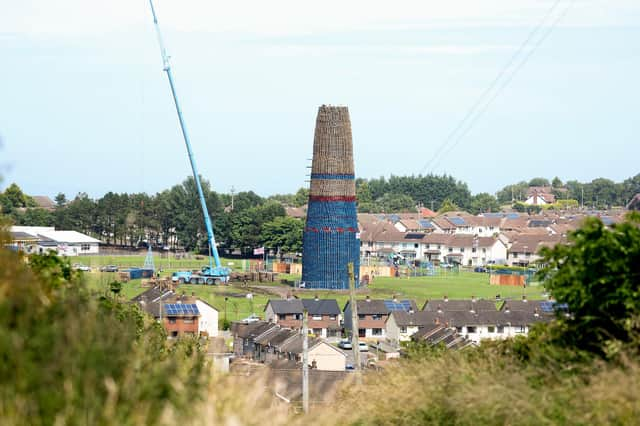Samuel Morrison: The Twelfth is hated because it’s the Twelfth, which is the antithesis of what some people believe we should all be embracing


Don’t get me wrong. As an Orangeman and someone who has always regarded the celebrations on and around the Twelfth as the highlight of the year, I want to see anything which detracts from the celebrations removed.
With that in mind, it would be infinitely preferable if effigies, posters and flags did not feature on Eleventh Night pyres and it is right that they are discouraged.
Advertisement
Hide AdAdvertisement
Hide AdHowever, one should not make the mistake of assuming that if every bonfire on the Eleventh Night in 2024 was free of posters, flags and effigies, kept to a safe size and cleaned up by the organisers criticism of events around the Twelfth would cease.
Nor should anyone be taken in by propaganda that what is burned on bonfires merits the degree of criticism directed at them.
Every year on 5th November in Lewes England many effigies are burned.
Over the years they have ranged from the likes of Boris Johnson the Dr Ian Paisley to foreign leaders such as Vladimir Putin or even Angela Merkel without a word of critical commentary in the press much less comment from foreign governments.
Advertisement
Hide AdAdvertisement
Hide AdIn the United States, burning the Stars and Stripes has been found to be protected by the US constitution.
Yet in Northern Ireland burning tricolours, political posters and very isolated incidents of the burning of effigies leads BBC news for days.
This is in the only part of the United Kingdom where we have people in public office who defend the literal burning of people as happened at La Mon.
Indeed, we have one who claims she will be a ‘First Minister for all’ who will not condemn those who chat their support for the murderous terrorist organisation responsible while waving tricolours.
So much for respect.
Advertisement
Hide AdAdvertisement
Hide AdBut even if one ignores all of that and grants that the criticism from talking heads on Talkback and similar outlets is justified, one does have to ask why the media ignores the many positive examples of what takes place on the Eleventh Night.
Due to my job I have occasion to interact with the BBC on a regular basis. I have repeatedly suggested to them that they run a story or even make a documentary on how the Eleventh Night could be celebrated.
The obvious example which could be used is what happened in Kilkeel in Co Down. This year again the Mourne-based Schomberg Society organised an event on the Eleventh Night which showcased the incredible musical ability of local youngsters with remarkable Ulster Scots displays before welcoming the D-Day Darlings to the stage, a group whose performances have drawn sellout crowds across the UK.
The night was rounded off with a wood bonfire with a traditional Lundy and superb fireworks display all hosted in a field owned by the District Orange. If the mainstream media outlets who give so much airtime to attacking bonfires really wanted to resolve the issues they complain about why do they show such disinterest in a model Eleventh Night celebration attended by many thousands?
Advertisement
Hide AdAdvertisement
Hide AdThe bottom line is that the problem with the Twelfth isn’t bonfires, parades in nationalist areas or the behaviour of bands.
The problem with the Twelfth is the Twelfth.
Everything it stands for is the antithesis of what some believe we should all be embracing.
Simply put, there are many people for whom the Twelfth is un-reformable because they are opposed to Protestantism and the Union.
The fact that tens of thousands of Protestant unionists dare to actually have the audacity to not only exist but come out and celebrate a couple of days a year – and have the cheek to celebrate with a display of artistic and musical ability which is unmatched not only by nationalism but in the whole of Europe – is what really annoys some people.